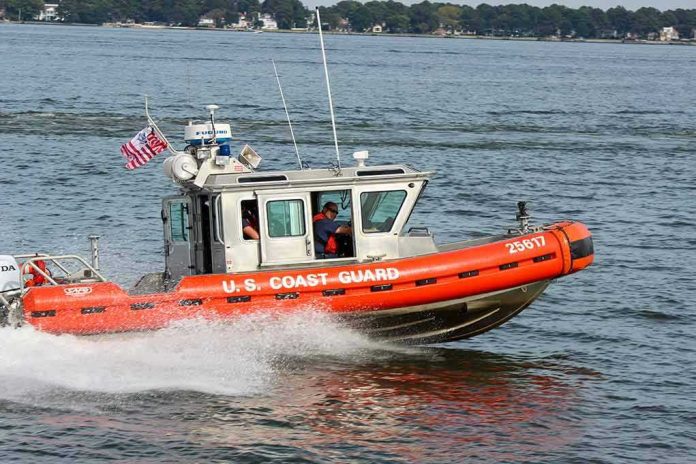
OceanGate’s disregard for safety standards led to a preventable disaster, raising urgent calls for reforms in deep-sea tourism.
Story Highlights
- The U.S. Coast Guard report reveals OceanGate’s systemic failures in the Titan submersible disaster.
- Lack of certification and a culture discouraging safety concerns contributed to the tragedy.
- The implosion could have been avoided with proper adherence to safety protocols.
- Regulatory reforms are now being urged to prevent future incidents in deep-sea tourism.
Coast Guard Findings on the Titan Disaster
On June 18, 2023, the Titan submersible imploded during a descent to the Titanic wreck, killing all five aboard. The U.S. Coast Guard’s August 2025 report concluded that OceanGate’s management failures and lack of adherence to safety standards made this tragedy preventable. The report highlights a culture that discouraged reporting safety issues and a reliance on unconventional materials, specifically carbon fiber, without proper certification.
OceanGate’s choice to ignore traditional safety protocols, including third-party certifications, contributed to the disaster. Despite repeated warnings about the risks of using carbon fiber and evidence of prior structural issues, the company proceeded with its deep-sea expeditions. The Coast Guard’s findings emphasize the need for stringent regulatory oversight and a shift in safety culture within the industry.
Impact and Reactions
In the aftermath of the report, OceanGate has ceased operations and is cooperating with ongoing investigations. The families of the victims, deep-sea tourism operators, and regulatory bodies are pressing for more rigorous safety standards. There are calls for international protocols to govern deep-sea operations, which currently lack binding safety regulations. This tragedy has sparked a broader discussion about the balance between innovation and safety in adventure tourism.
Economically, the incident has caused significant losses for OceanGate and could deter future investment in the sector. Socially, there is heightened public concern over the safety of adventure tourism, prompting potential customers to reconsider participating in such expeditions. Politically, there is growing pressure on governments to address regulatory gaps in international waters, ensuring such disasters do not recur.
Expert Opinions and Future Directions
Industry experts criticize OceanGate’s use of carbon fiber for deep-sea hulls due to unpredictable failure modes. Figures like James Cameron and Bob Ballard have underscored the risks of ignoring established engineering principles. Maritime safety professionals advocate for mandatory third-party certifications and international regulatory frameworks to bolster safety in the industry.
While some argue that innovation inherently involves risks, the consensus among experts is that OceanGate’s approach was reckless, with the disaster being entirely avoidable. The Coast Guard’s report is backed by investigative journalism and expert testimony, underscoring the urgent need for reforms in deep-sea tourism safety protocols.
Sources:
Encyclopaedia Britannica (2025)
Wikipedia: Titan submersible implosion
ABC News: Coast Guard Report on Titan Submersible
CBS News: OceanGate Titan Submersible Tragedy



